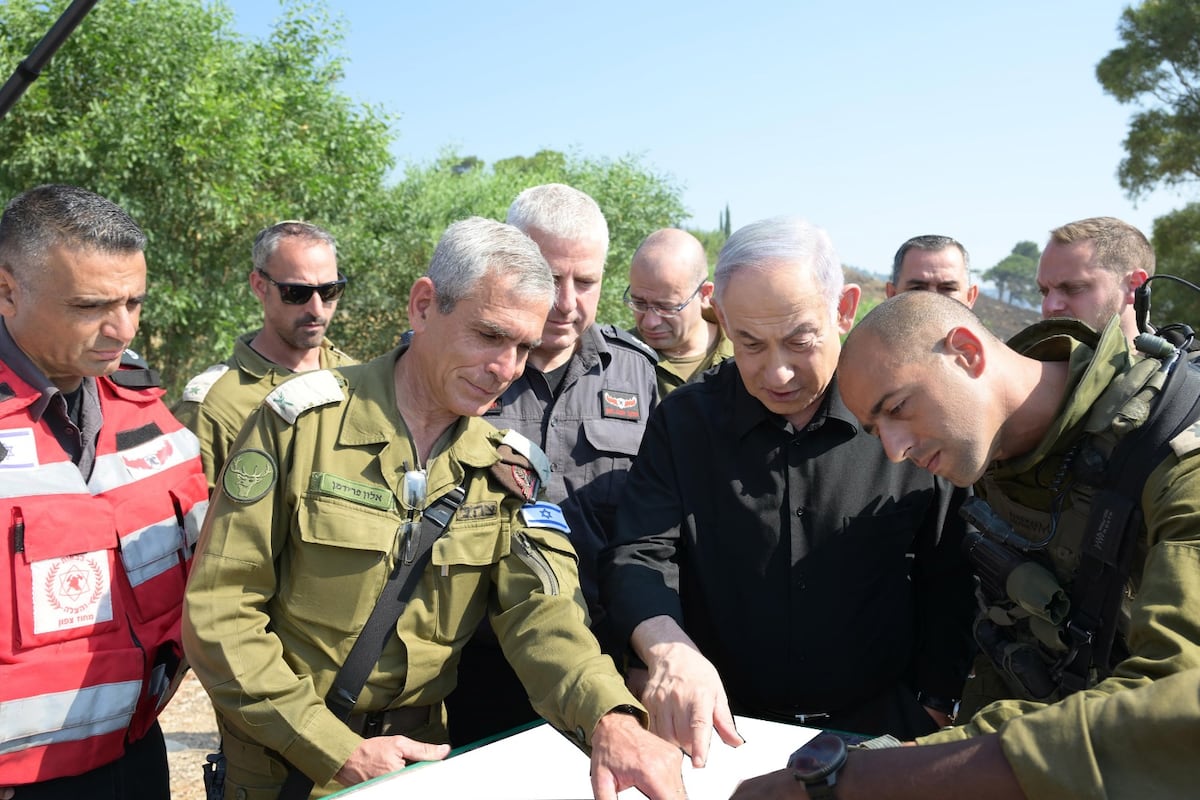Israel Prepared for Intense Action in Northern Border Conflict
The drums of war between Israel and the Lebanese militia Hezbollah are sounding increasingly louder. The government of Benjamin Netanyahu appears determined to significantly escalate the conflict, following military commanders' requests. For eight months, there has been daily crossfire in parallel with the Gaza invasion, but now, a more significant offensive looms. During his border visit on Wednesday, Prime Minister Netanyahu stated, 'We are prepared for very strong action in the north.'
The Israeli Executive is planning to increase the quota of reservists it can call up from 300,000 to 350,000 by the end of August. The move is tied to the needs of the offensive in Rafah but also signals potential preparation for action in the north, as per the chief of the General Staff, Herzi Halevi. According to a February survey by the Maariv newspaper, 71% of Israelis support the escalation to allow the 60,000 evacuees from the border area to return home, despite the risks of an open and potentially regional war.
Escalating Tensions and Emotional Triggers
The situation in the north has been exacerbated by emotional triggers, particularly a fire caused by an explosive drone launched by Hezbollah. Netanyahu highlighted this incident in his speech, showcasing the destructive effects and igniting calls from the extreme right to retaliate more forcefully. On Tuesday night, Netanyahu convened the war cabinet to discuss the northern border situation and Gaza ceasefire negotiations. Far-right Finance Minister Bezalel Smotrich called for 'returning Lebanon to the Stone Age,' echoing Defense Minister Yoav Gallant's earlier warning.
Citizens evacuated from the border area express pressures and feelings of being forgotten. Many have risked returning to their homes despite dangers, while others are fatigued from extended stays in publicly funded accommodations. This emotional and social toll adds to the pressure on the government to take stronger actions.
Efforts for Diplomatic Resolutions and International Concerns
In the face of this mounting tension, the United States has urgently dispatched CIA chief William Burns to Israel. President Joe Biden emphasized that 'the time has come to end' the war in Gaza, positing that peace there could pave the way for an agreement between Israel and Hezbollah to avoid a war. Hezbollah has stated that it will cease firing if Israel halts its Gaza bombings. However, the Israeli leadership no longer views a return to the pre-October 7 status quo as viable. They see Hezbollah's armed presence across the border as an existential threat.
In southern Lebanon, the Israeli army has used artillery shells containing white phosphorus in several towns, a practice prohibited under international law against civilians or densely populated areas. Amnesty International released findings on this, stressing the need for adherence to international regulations.
Diplomatic efforts are ongoing, led by American-Israeli Amos Hochstein, who aims for an agreement that distances Hezbollah's forces from the border and clarifies territorial boundaries. This effort mirrors past diplomatic successes, such as the 2022 maritime border agreement between Israel and Lebanon for gas exploitation.
- In recent days, the exchanges of fire between Israel and Hezbollah have intensified significantly. The Israeli army continues to conduct strikes deeper into Lebanese territory, raising even higher the stakes of a broader regional conflict.
- Prime Minister Netanyahu's statements have been reinforced by his far-right governmental allies. Minister Itamar Ben-Gvir and Finance Minister Bezalel Smotrich have publicly urged for urgent military action to restore security. Their aggressive rhetoric reflects the escalating pressures within the government to respond forcefully to Hezbollah provocations.
- The ongoing conflict has resulted in significant casualties. In Lebanon, the eight months of violence have left at least 455 people dead, the majority of whom were combatants. Civilians have also suffered, with nearly 90 casualties reported. On the Israeli side, at least 14 soldiers and 11 civilians have been killed, indicating the severe human toll of the conflict.






